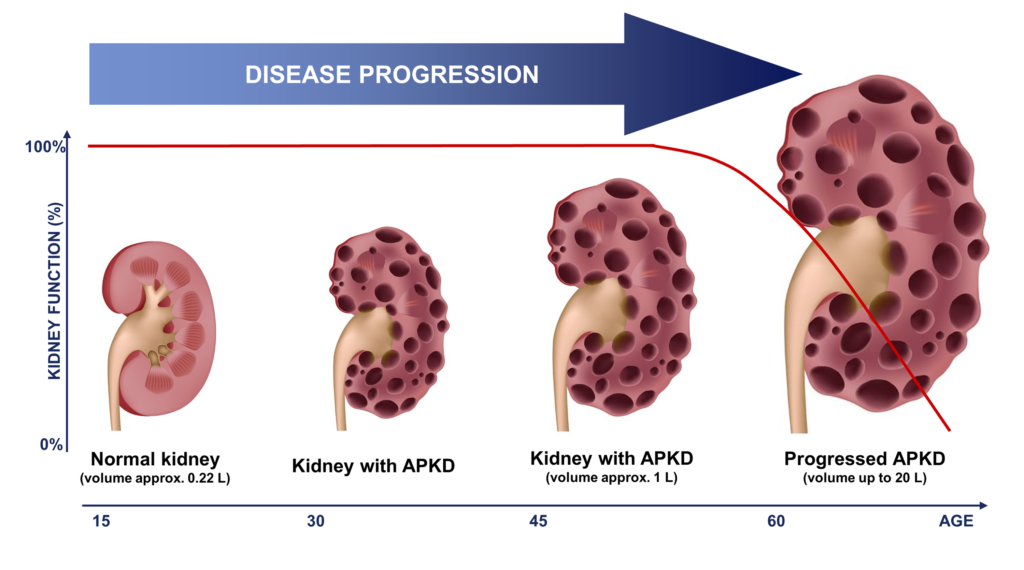SCIENCE
POLYCYSTIC KIDNEY DISEASE
Polycystic kidney disease (PKD) is a genetic disorder in numerous cysts develop primarily within the kidneys, causing the kidneys to enlarge and eventually lose function. There are two main subtypes of PKD:
Autosomal dominant polycystic kidney disease (ADPKD) is the most common inherited kidney disease, characterized by the development of numerous fluid-filled cysts, kidney enlargement, and eventual progression to chronic kidney disease (CKD) and end-stage renal disease (ESRD). While some severe forms of ADPKD can affect young children, most PKD patients develop symptoms in early adulthood or later. The probability of progressing to ESRD increases with age, with 50% of ADPKD patients over the age of 60 years requiring dialysis or kidney transplantation. The majority of ADPKD cases are caused by a mutation in one of two genes, PKD1 or PKD2. These two proteins localize to the primary cilia of renal epithelial cells and play an important role in regulating renal development and function, promoting epithelial differentiation, and preventing cell proliferation.
Autosomal recessive polycystic kidney disease (ARPKD) is also characterized by the formation of kidney cysts and enlargement leading to ESRD. In contrast to the dominant disease, ARPKD is typically a more severe and earlier onset disease that usually develops in utero or early childhood. Most cases of ARPKD arise from mutations in the PKHD1 gene, which encodes the fibrocystin protein. Fibrocystin also localizes to the primary cilia of renal epithelial cells where it is required for renal development and maintenance. Fibrocystin has been shown to associate with the polycystin complex (PC1-PC2) and its deficiency impact similar proliferative pathways to promote cyst formation, kidney enlargement, and progression to ESRD.
The glycosphingolipids GL1 and GM3 are elevated in kidney tissue from patients with poly cystic kidney disease and in animal models of polycystic kidney disease. Studies using GCS inhibitors in multiple different animal models of PKD have demonstrated that reducing the production of GSLs can slow cyst growth and preserve kidney function. 
© Copyright AceLink Therapeutics. All rights reserved
